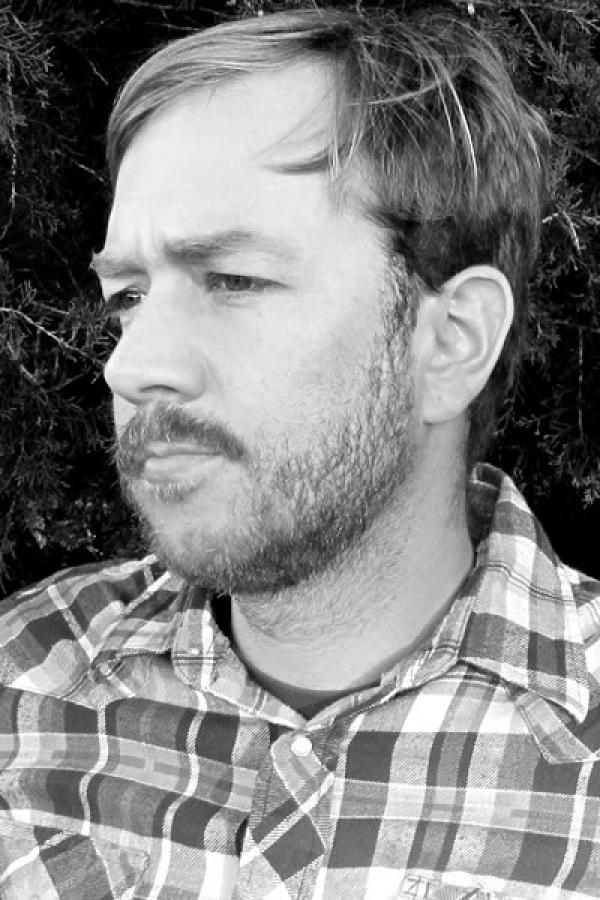Chris Martin

Photo by Mary Austin Speaker
Bio
Chris Martin is the author of American Music (Copper Canyon, 2007), winner of the Hayden Carruth Award; Becoming Weather (Coffee House, 2011); and The Falling Down Dance (Coffee House, 2015), which received a Midwest Booksellers Choice Award for poetry. In 2015 he co-founded Unrestricted Interest, an organization dedicated to transforming the lives of kids and adults with autism through poetry. He has also taught at the Loft Literary Center, the University of Iowa, and Carleton College. He lives in Minneapolis with his wife, the poet Mary Austin Speaker, and their two children. After working as an editor at Futurepoem books, he now co-edits Society Editions, a publishing concern at the intersection of politics and poetics.
Author's Statement
We owe the soul of this country to the enslaved, persecuted, uprooted, and oppressed Americans who have brought and continue to bring forth the art, justice, conscience, and life-affirming spirit which define our better will. Over the past few years I have been trying, somewhat desperately I fear, to create poems that approach this better will while necessarily interrogating its opposite.
Of the many things this grant will allow me to do (write, think, read, engage) or not do (toil, fret, get a real job, become a full-time childcare provider), chief among them will be the allowance for failure. In writing toward this better will and its opposite, I have been immersed in failure, our society’s and my own. The resultant poems have been largely insufficient. Whiteness, especially as articulated in the works of Toni Morrison and Claudia Rankine (not to mention Herman Melville), is incredibly, unconscionably, and strategically elusive. But I’ve written a couple poems that feel real. A few. There are some moments that beckon, if not reckon.
My poetry is rooted in difficult questions, difficult choices. I like to call poetry the most ethical art, because each poem hinges (thousands of times over) on choice. You make one every time you break the line. Critics often refer to my lines as “spare,” but I see even my shortest lines as bursting; demanding the turn, the change, the break. So, to what end are these choices made? Having just brought a second child into the world with my wife, the poet and book designer Mary Austin Speaker, I’m not in a position to fail over and over again at something that doesn’t bring us any significant income (although nothing that brought us significant income would allow us to fail over and over again, I suppose.) But we have made the same choice, over and over again, to take that financially irresponsible path. Why? Because convenience is the stepladder to oblivion. Because bank accounts are deafening. Because calamity demands risk, calls us to leverage our individual power for the cause of justice. Because we belong to the long lineage of poets that choose what’s difficult and transformative over what’s expedient and expected. And because we’ve had the lifelong privilege of appearing white (the privilege whose dark side is spiritual crisis), we can (and must) afford, in all senses of that term, to take risks. We owe it to our neighbors, our country, and ourselves.
This grant means I can not only fail and fail and, Poetry willing, eventually find some way to speak about whiteness in my work, but I can do restorative labor in my community to combat white supremacy through publishing (Society Editions), teaching free workshops for vulnerable populations, and continuing my work with the autism community in support of creativity, increased quality of life, and the neurodiversity movement. When the NEA supports my writing with this grant, it supports all these other necessities.
"Time (death)"
Let’s say you’re
a man, a man
who likes looking
at men, a woman, a
woman who likes
looking at men, at
women, a man who
likes looking at
women, necessarily
each and a stranger
walks by in a flower
print, in thick stripes
and worn denim, barefoot
and sleepy, in heavy
boots, in a loose and torn
shirt, a skinny
tie, tortoise shell
sunglasses, in a snug pair
of corduroy shorts, studded
wristband, shaved
smooth, a brown waterfall
of curls, arm sleeved in deep ink
and cuffs rolled up, unreasonably
tall, possessing almost
antiquely small hands, wearing
a necklace made of shells and trailing
the scent of cut wood, this stranger
squirming past, solidly
striding out of view, and in the impossible
dilation of this moment you are
caught
in the existing of a person
who moves
across rooms. The it
that was you
tugged into the throe
of parenthesis.
You die. What’s its name?
It doesn’t have one. It’s
wave. Borne. A magnet. The leash off
and a vacuum
of (you) roves. Unperform.
("Time (death)" is reprinted by permission from The Falling Down Dance (Coffee House Press, 2015). Copyright © 2015 by Chris Martin)

